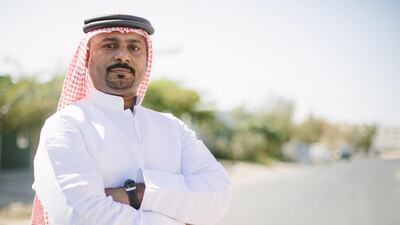ABU DHABI // Khaled Al Noobi’s wife divorced him because she no longer wanted to live with a man so heavily in debt.
“I don’t blame her,” the Emirati said. “I couldn’t put food on the table and was wanted by the police for my debts.”
His wife decided the Government was a more stable option than her husband.
“She’s right,” he said. “Now she’s divorced she gets welfare and is sure that a steady amount will come in each month. I couldn’t give her that.”
Mr Al Noobi, 40, said he knows of many Emirati families that have been destroyed by debt.
“Yes, I am ashamed but there is nothing that I could do. I made a mistake and now will spend the rest of my life paying for it.”
His mistake was taking his business from bank to bank on the promise of a bigger loan with the same payment.
In 2006, “I took out a personal loan from Emirates Bank for Dh375,000 that amounted to Dh450,000 with the interest.
“I needed the money to send my mother abroad for treatment, buy a car to take me to work and to build an extension at my parents’ house to live in.”
Mr Al Noobi was making Dh11,000, working for an aluminium company. “The bank used to deduct Dh6,000 for the loan and for a year I was fine.”
When he needed more money, the bank refused.
“Dubai Bank agreed to give me a loan as long as I transferred my salary to their bank and they would buy my old loan,” he said.
“The bank said they would give me a commercial loan and they had already taken over my personal loan from Emirates Bank, so I had two loans.”
His debt reached Dh750,000.
“I needed another loan and Dubai Bank refused.” Mr Al Noobi went to Etihad Bank, which bought his previous loan and gave him another Dh150,000.
He found himself Dh1 million in debt and without a job. An arrest warrant was issued after he stopped making payments.
Then his wife left. “I swear I never knew that I would end up like this,” he said. “I don’t want my children to go through this.
“Everyone thinks Emiratis are in debt to play around or buy fancy cars but that’s not true. We are in debt because we want to send our families abroad to get the best medical treatment or build our own houses or send our children to the best schools.”
salnuwais@thenational.ae
__________________________________________________________________
About this special report:
A study by McKinsey & Company in 2011 showed that 70 per cent of UAE nationals younger than 35 are in debt. Car loans are the most popular with Emiratis and unregulated banks do nothing to improve the situation by encouraging locals to take out unsecured loans up to four times their annual salaries. Non-payment of loans has led to countless arrest warrants and jail time. Last year, 3,638 Emiratis had cases filed against them in Abu Dhabi judicial courts for bounced cheques. As a result, the Emirates Foundation and the Ministry of Education have teamed up to educate young people, and tackle the problem of financial illiteracy that plagues the country.
Read more:
■ UAE debt problem to be tackled at school level
■ Case Study: Despite loan relief, Emirati man still has huge debt
■ Case Study: Emirati couple believes bank tricked them into unbearable debt

